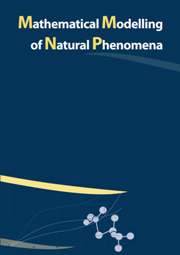Article contents
Analysis of a Model with Multiple Infectious Stagesand Arbitrarily Distributed Stage Durations
Published online by Cambridge University Press: 23 October 2008
Abstract
Infectious diseases may have multiple infectious stages with very different epidemiological attributes, including infectivity and disease progression. These stages are often assumed to have exponentially distributed durations in epidemiological models. However, models that use the exponential distribution assumption (EDA) may generate biased and even misleading results in some cases. This discrepancy is particularly damaging if the models are employed to assist policy-makers in disease control and interventions. This paper studies a mathematical model that includes multiple infectious stages and general distributions for the stage durations (with the exponential distribution as a special case). Formulas for the control reproductive number, Rc, and the basic reproductive number, R0, are derived, which can be conveniently applied to models in which specific stage distributions are assumed. It is also shown that the disease dynamics are determined by the reproductive numbers.
- Type
- Research Article
- Information
- Mathematical Modelling of Natural Phenomena , Volume 3 , Issue 7: Special issue dedicated to Glenn Webb , 2008 , pp. 180 - 193
- Copyright
- © EDP Sciences, 2008
- 4
- Cited by




